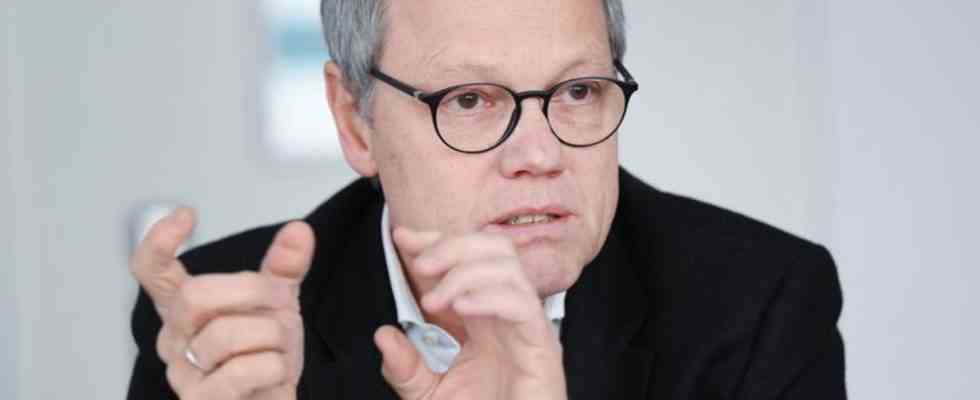ARD chairman
Kai Gniffke: Technology investments are crucial for the future
Kai Gniffke, director of Südwestrundfunk and ARD chairman: “Technology is also needed if we want to stand up to the big platform operators”. photo
© Bernd Weißbrod/dpa
Kai Gniffke’s goal is to make ARD the most relevant streaming provider in Germany by the end of the decade. In addition to the necessary investments, he also talks about the role of artificial intelligence.
ARD chairman Kai Gniffke sees significant investment in technology as key to the future of public broadcasting. “In my vision, the ARD will be a media association that combines journalistic quality content with first-class technology,” said Gniffke at the Tutzing Evangelical Academy on Lake Starnberg.
Technical investments are crucial in the competition with international providers such as Netflix, Amazon and Spotify. “Technology is also needed if we want to stand up to the big platform operators,” said Gniffke, who is also director of Südwestrundfunk (SWR). He emphasized his goal of becoming the most relevant streaming provider in Germany with ARD by the end of the decade.
Investments of several hundred million euros planned
“ARD wants to invest several hundred million euros in the development of technology in the coming years,” said the ARD chairman. The first thing to do is to set up a joint streaming network with ZDF.
That could then be the nucleus for “something much bigger,” said Gniffke. “A marketplace for all German media. It’s about creating a media infrastructure that has the chance to break the power of social networks and the big platform operators.”
“It will cost a lot of money,” said Gniffke. “We won’t just get these necessary resources on top of that. I’m not unworldly about that,” admitted the ARD chairman. “So we have to join forces.”
The role of technology and artificial intelligence
Gniffke has been ARD chairman since the beginning of the year. The office changes among the institutions. The chairman represents all nine state broadcasting corporations of the ARD as the highest representative.
Technology and artificial intelligence are also needed to combat fake images and videos and for digital watermarks to protect content. According to Gniffke, text robots could take on routine tasks in order to free up capacities for genuinely journalistic activities such as complex research.
The public service broadcasters finance themselves predominantly from the broadcasting fee paid by households and companies. It is currently 18.36 euros per month. The current contribution period runs until the end of 2024.

